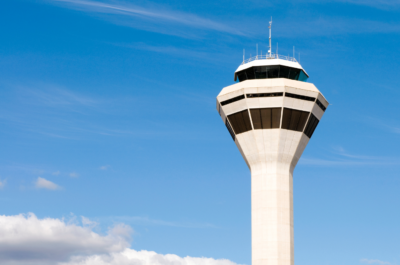…
At the recent ISHC Annual Conference held in London, ISHC Members participated in a series of roundtable discussions to identify the ISHC Top Ten Global Issues and Challenges in the Hospitality Industry for 2005.
While there were dozens of issues discussed, in the final voting the membership identified the following eleven (there was a tie for number ten) issues as the ones that can be expected to potentially have the greatest impact on the industry in 2005.
ISHC Top Ten Issues & Challenges for 2005
1. Global Uncertainty
While the global hospitality industry continues to recover following the effects of the terrorist attacks of September 11, 2001, SARS, the war on terrorism in Afghanistan, and the war in Iraq, Global Uncertainty remains a major concern. Terror attacks are the most direct example of global uncertainty, however, there are other areas of concern such as geopolitical relations, governmental travel restrictions and currency exchange rates. The industry needs to take a proactive approach in addressing these issues and their potential impact.
2. Human Resources Issues
Human Resources is an area that is growing in importance. As the industry continues to recover, it needs to focus on its employees and their roles as service providers. Increasing demand requires increased staffing levels at a time when the labor pool is shrinking. To address this issue, the industry must attempt to work with the unions as allies, devote more time and money to recruitment and training and educate politicians as to the impact of governmental economic and immigration policy on the industry.
3. Branding Issues
The society notes the following Brand Issues facing the industry in 2005:
- A proliferation of brands and branded hotels worldwide that is leading to the commoditization of the hotel product.
- Increased competition between the brands is leading to amenity creep, and diverging interests between owners and brands.
- Instilling authenticity of local culture into brand standards remains a challenge.
4. Financial Viability
There is a significant amount of capital currently flowing into the hospitality industry. Not only are investors betting on a strong recovery, but also in some cases they are not performing realistic projections and investment analyses. Should expectations not materialize, then sub-par returns could damage the overall financial credibility of the lodging industry.
5. Technology
The hospitality industry must do a better job of managing technology and addressing the challenges posed by new and changing technology. Specifically, the industry must align technology investment with business objectives, address aging and inadequate infrastructure (at both the corporate and the property levels); and learn to better utilize technology in marketing to guests, training employees, yield management, and meeting customer requirements.
6. Customer Issues
Customer issues present a challenge to the industry in several ways:
- Increasing loss of control over the customer – The use of the Internet, homogenization of the hotel product and increased corporate oversight has reduced the amount of control that operators have over the customer.
- Changes in the customer – Hotel customers are changing due to demographics (the aging of the baby boomer generation) and due to lower transportation costs that promote travel.
- Changes in customer expectations – Customer expectations are changing as consumers become more sophisticated and better educated.
7. Operating Cost Creep
While the industry has experienced strong revenue growth this past year, with revenues expected to approach 2000 levels, bottom line performance has eroded dramatically (i.e. over 30%) since 2000, due to escalating expenses. In recent years “non-controllable” costs such as utilities, insurance and government regulation have increased significantly. These costs along with interest rates are expected to increase in 2005. In addition, there is the potential for increases in controllable costs such as payroll, staffing, brand requirements, and amenity creep. The industry must be cognizant of these increases, and take steps to address them.
8. Supply Issues
There are three supply related issues facing the industry:
- Increasing alternative forms of supply such as time-share, fractional ownership, second homes, camping, cruising and waterparks.
- “Under demolished” (functionally obsolete) supply is, and will remain a challenge for owners and operators, particularly in Europe where new construction is expensive and difficult.
- In the United States, the use of public funds to develop hotels and resorts presents a challenge for existing private owners and operators.
9. Safety and Security
The threat of terrorist attack remains a major concern for the industry. Hotel operators must make every effort to protect their guests while encouraging tourism.
10. (Tie) Distribution Channel Management
In 2005, Distribution Channel Management as an issue must be viewed in a much broader context than in the past. Whereas most hospitality organizations have devoted extraordinary efforts to managing electronic channels, a broad-based distribution management strategy now must consider the following challenges. In 2005 it is expected that price sensitivity will continue to drive consumer buying behavior in virtually every segment. Pricing structures will need to demonstrate price integrity across all distribution channels—not just electronic ones. The potential challenges are formidable: lead times to booking continue to shrink; the move toward real time inventory becomes paramount, impacting technology, product categories, segments and channels; and the desire to track and manage every revenue stream in every channel means that distribution channel management transitions to a focus on the most profitable customer.
10. (Tie) Airlines in the 21st Century
It is important to closely monitor the fundamental changes occurring in the airline industry and their potential impact on the hotel industry for the viability of the hotel industry depends greatly on airline lift capacity, service and convenience in travel as well as the cost of airline travel.
Traveling by air today is a major inconvenience for many travelers and security remains a huge challenge and very costly undertaking for the industry. Customers have become much more “value” focused and most major airlines have experienced a substantial decline in revenues per passenger mile primarily due to the erosion in high end/priced business travel. In addition to the escalating cost of fuel, many airlines are also struggling to address labor issues. In brief summary, with several carriers worldwide in bankruptcy and/or severe financial distress it is an enormously challenging time for the airline industry. In light of these financial challenges we can anticipate that carriers of necessity will need to reevaluate route structures, lift capacity in certain markets and well as rethink pricing on certain routes—changes that can be expected to represent potential challenges for some hotels/markets and opportunities for others.
Submitted by Matt Arrants ISHC, Director of Boston based Pinnacle Realty Investments, and Lori Raleigh, Executive Director ISHC, on behalf of the International Society of Hospitality Consultants (ISHC). ISHC is a professional society of 175 members in 16 countries who are leading consultants in the hospitality industry. ISHC members have expertise in over 30 different specialty areas in the hospitality industry and collectively have experience with many leading independent hotels and over 100 brands worldwide.
Membership is by invitation only. Members are owners, principals and/or directors in their firms and are recognized as leaders in their respective areas of expertise. For a complete listing of ISHC members and their areas of expertise and/or to access the ISHC Library or Speakers Bureau, please visit www.ishc.com.
Matt Arrants may be contacted via phone at 1-617-523-0001 or via email at marrants@pinnacle-advisory.com.
Lori Raleigh may be contacted via phone at 1-239-436-3915 or via email at lraleighishc@aol.com.
TravelDailyNews Asia-Pacific editorial team has an experience of over 35 years in B2B travel journalism as well as in tourism & hospitality marketing and communications.











































































